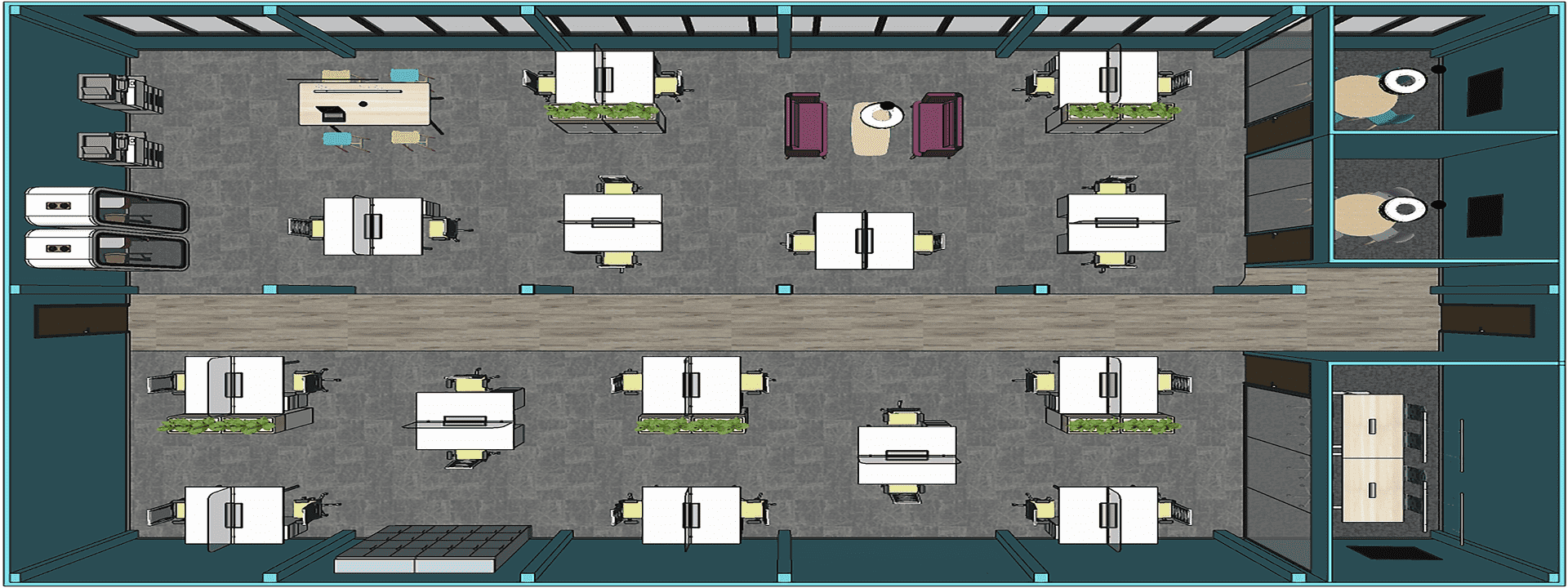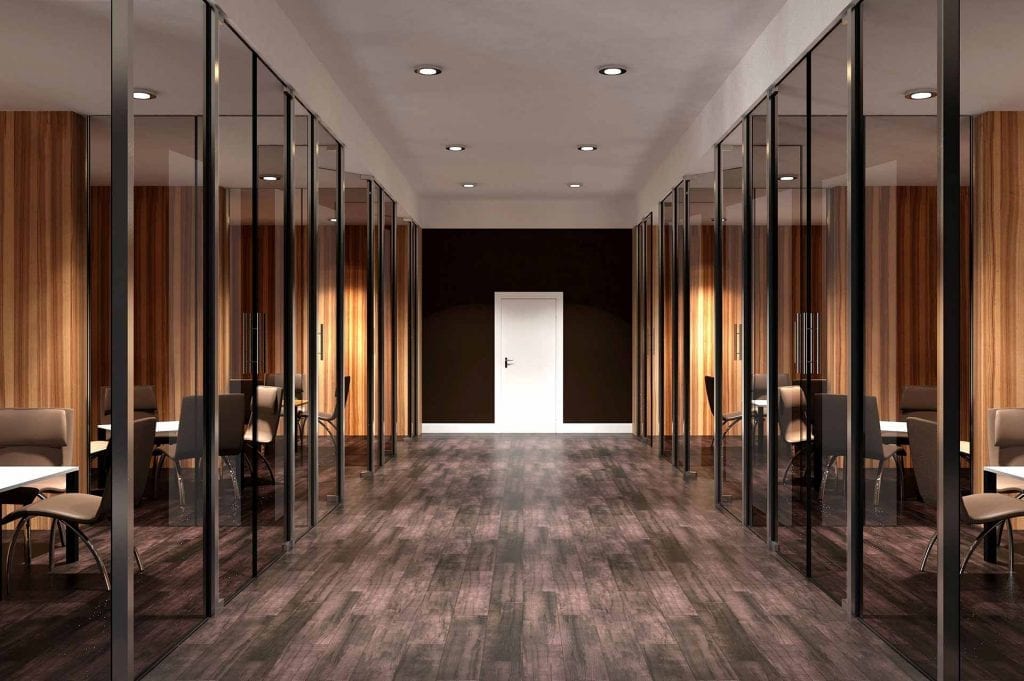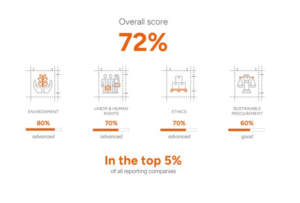Preparing the office responsibly for a post-COVID world
As businesses thoughts are focused on the return to work after the latest lockdown, we are helping clients to prepare their offices for a post-COVID world whilst ensuring that doing so doesn’t cost the earth.
Covid-19 has created financial and logistical challenges from entire businesses home working, uncertain economic times, and social distancing requirements. As a result, all over the UK, the workplace is changing, whether in the short term or long term. This mass workplace transition is unprecedented in modern times and is likely to have huge combined impacts, not least on carbon emissions and waste, if not managed carefully. We are making sure our clients are able to make these changes sustainably, with not just environmental but also social and financial benefits.
Some organisations are choosing to maintain existing space formats with 50% occupancy and 50% redundancy. We have helped others to reconfigure their spaces and keep a higher number of positions whilst maintaining social distancing and collaborative areas, as well as taking the opportunity to introduce nature into the office to create a healthier workspace. In our experience, this is making an estimated 44% of furniture stocks redundant. With pre-planning, this excess furniture can be redeployed or made available for use by others, extending its lifecycle whilst also saving costs.
Making decisions sustainably
Under these circumstances, businesses are making decisions around health and safety but it’s important to recognise that these decisions can also be made sustainably. Direct reuse internally is the best option for unused assets, with audits of existing furniture helping to identify opportunities for redeployment elsewhere. If no longer meeting business needs, existing furniture can potentially be remanufactured or repurposed to meet new requirements such as smaller desk footprints. If this doesn’t meet the requirements of the office, is there the potential for offering employees better solutions for home working?
If procuring for reconfiguration, purchasing used rather than new furniture can have huge cost savings of between 40% and 80% and carbon savings of, again, between 40% and 80%. Buy-back options can secure items’ reuse when you no longer need them. If buying used isn’t an option then buying quality means that assets such as furniture, IT and electrical equipment are likely to have a financial or social value when you no longer need them, extending the lifecycle of these items.
When dealing with redundant assets, there’s an opportunity to maximise their value whilst prolonging their life, reducing waste and benefiting others. Resale can create financial value which can be used to help fund reconfiguration works or provide additional health and wellbeing benefits by incorporating plants into the office and other elements of the natural environment. Donation can save on disposal costs and create social value, supporting local communities and helping those in need.

A responsible transition
Office relocations can also be carried out sustainably with clearances of the vacated office carried out in line with the waste hierarchy, and interior refurbishment delivered to reduce carbon emissions and environmental impacts whilst maximising wellbeing in the workplace.
As businesses are driven to reconfigure or relocate their workplaces there is huge potential to create significant increases in their Scope 3 emissions and a huge mountain of redundant furniture. Whether making interim or long-term decisions, we can all play a role in ensuring this is a green recovery by making a low-carbon, low waste transition that provides a healthier and more sustainable workplace.
How to deliver a carbon-friendly workplace transition
Crown Workspace’s interior refurbishment services bring together our extensive expertise in sustainability, workplace change and quality workmanship. Combining professionalism and responsiveness, we design and deliver truly sustainable and inspiring workplaces to the highest standards, on time and on budget.
Our circular workplace solutions have a direct role to play in reducing the embodied carbon of our clients’ furniture, IT and equipment by reducing the need to buy new, keeping items in use for longer and ensuring they are recycled responsibly when they truly reach their end-of-life.
Crown Workspace are part of Business in the Community’s (BITC) Circular Economy Taskforce. This article was inspired by our work with BITC to produce the ‘How to deliver a carbon friendly workplace transition’ toolkit, designed to help businesses reduce the environmental impact of workplace transition whilst improving employee health and wellbeing.
Related stories
Sustainability remains a top business priority for Crown in the UK & Ireland and globally; we are therefore delighted to have launched our 2023 UKI Sustainability Report!
Crown are delighted to announce that we have been awarded Gold by EcoVadis in 2024 for the second time, reflecting our commitment to and progress in becoming a responsible business.
We supported both Landaid and the YMCA with cardboard boxes for their annual sleepout events. We were incredibly pleased to deliver 1,100 boxes as well as bring along a group of volunteers to the YMCA event.



















